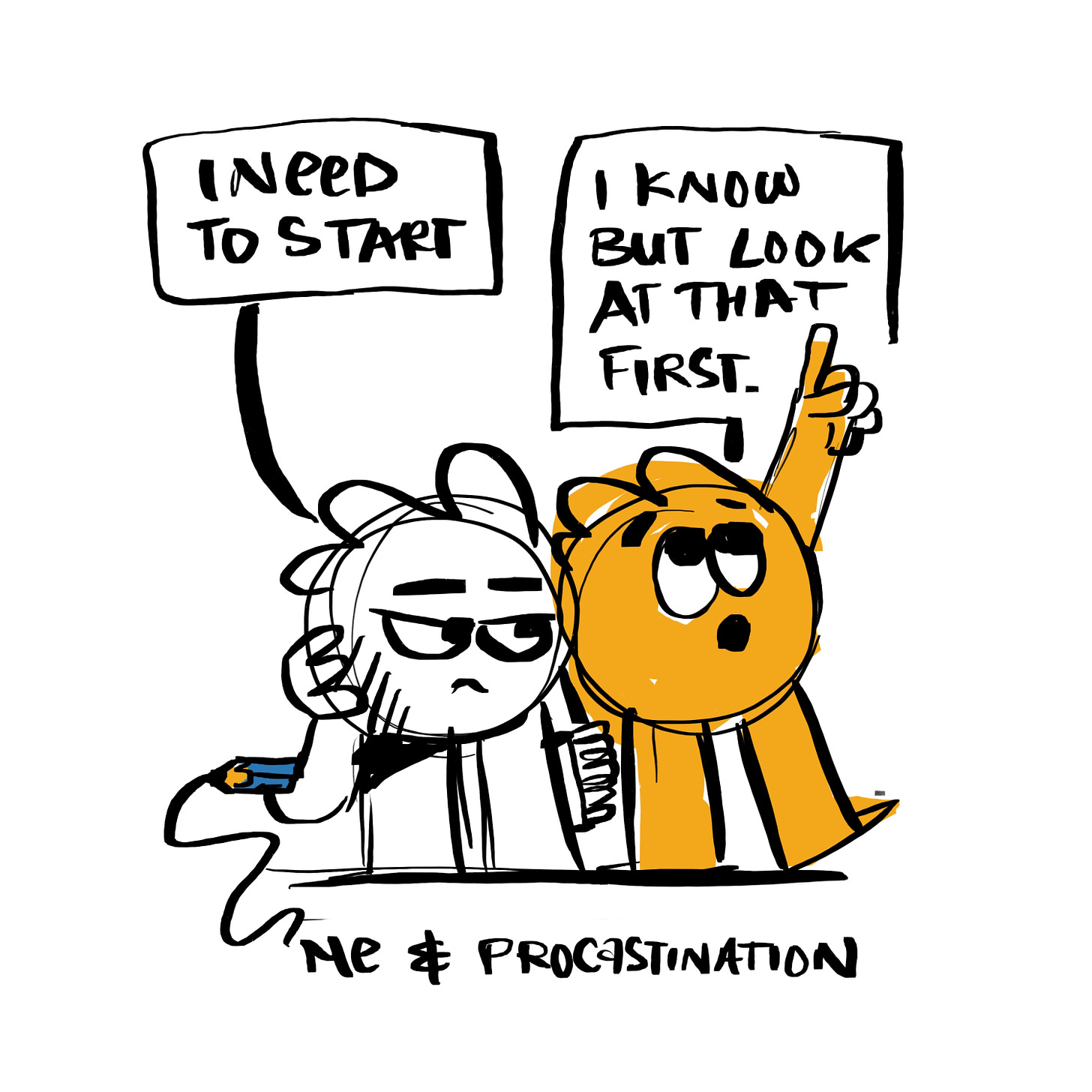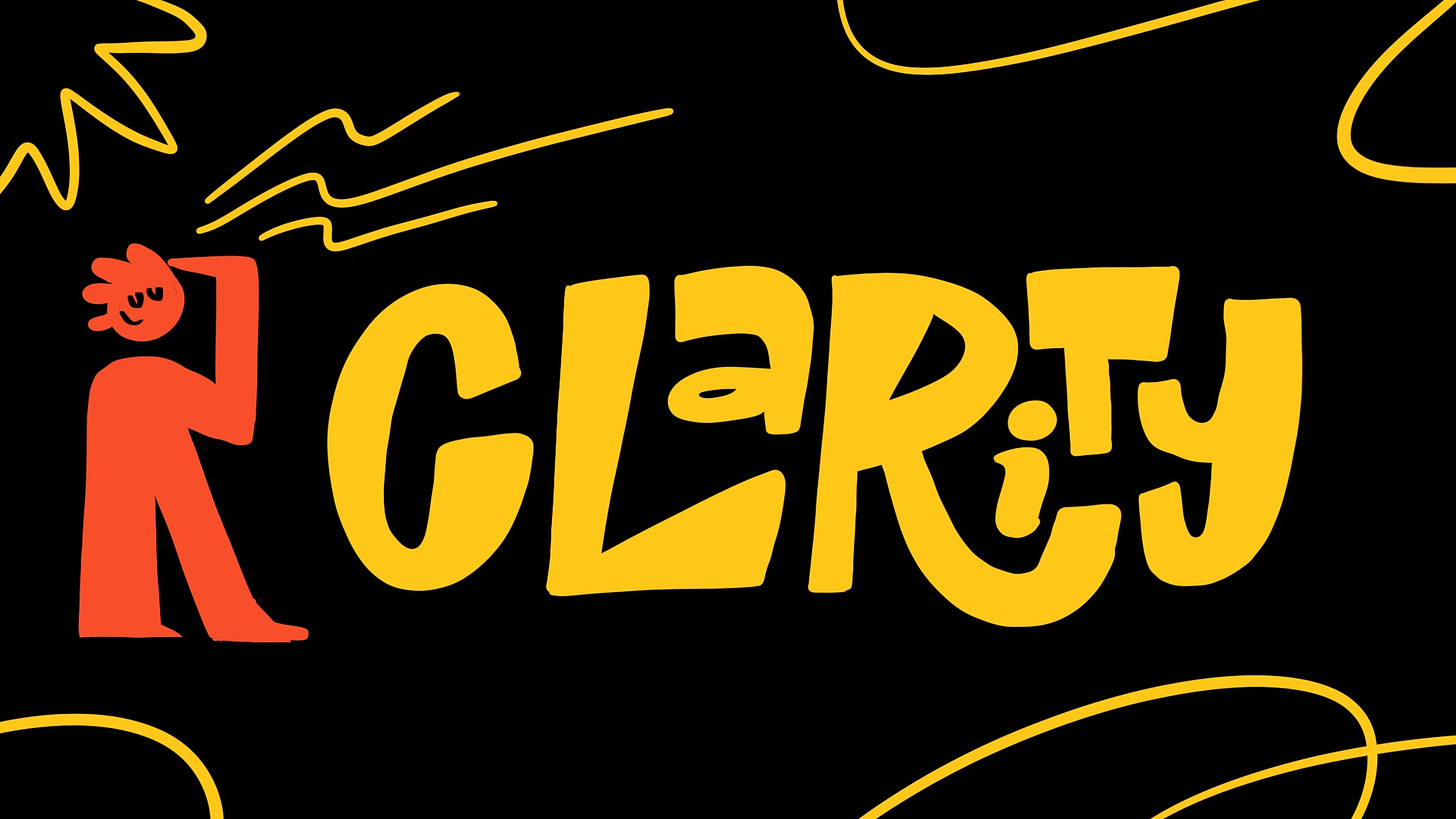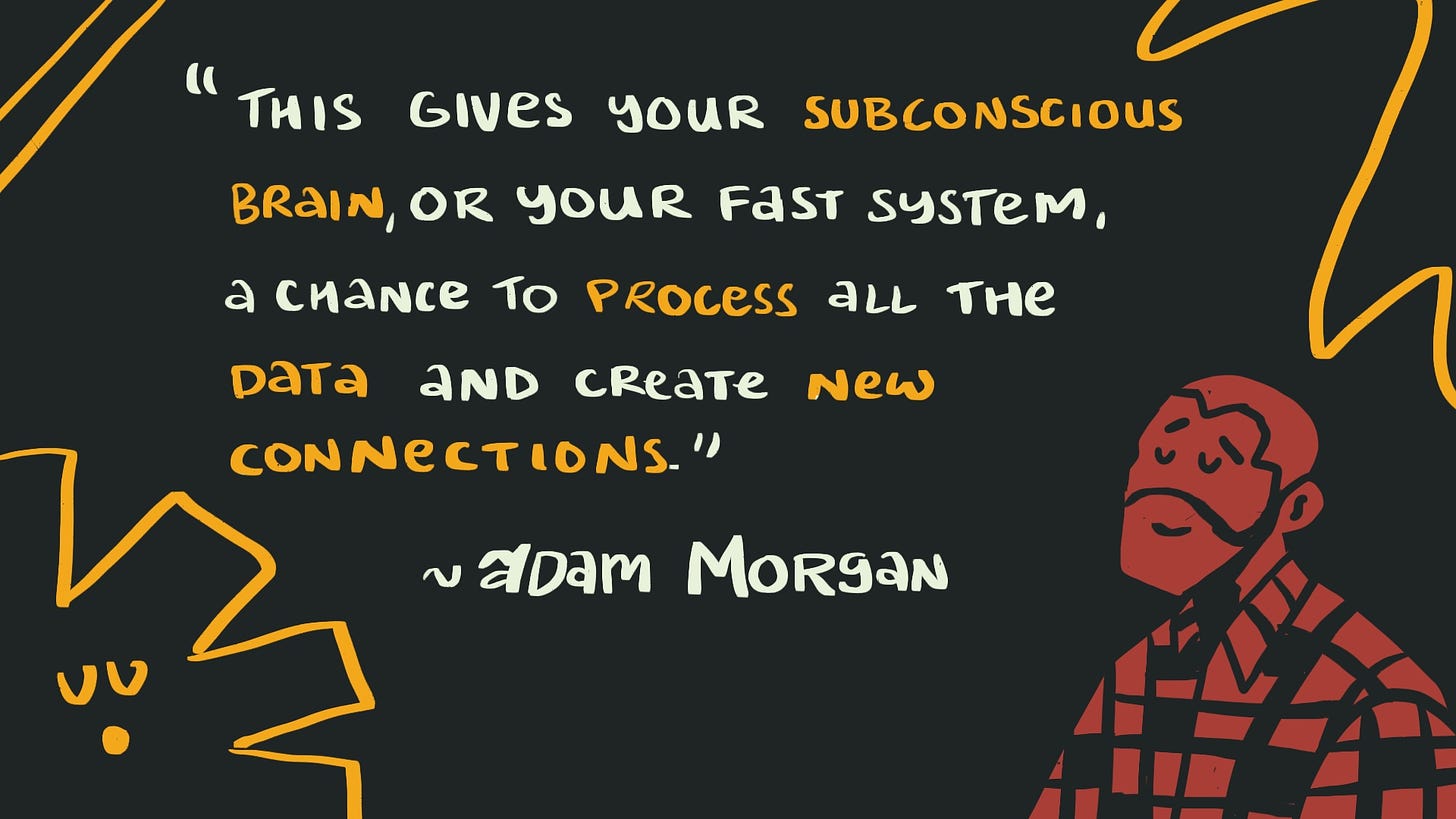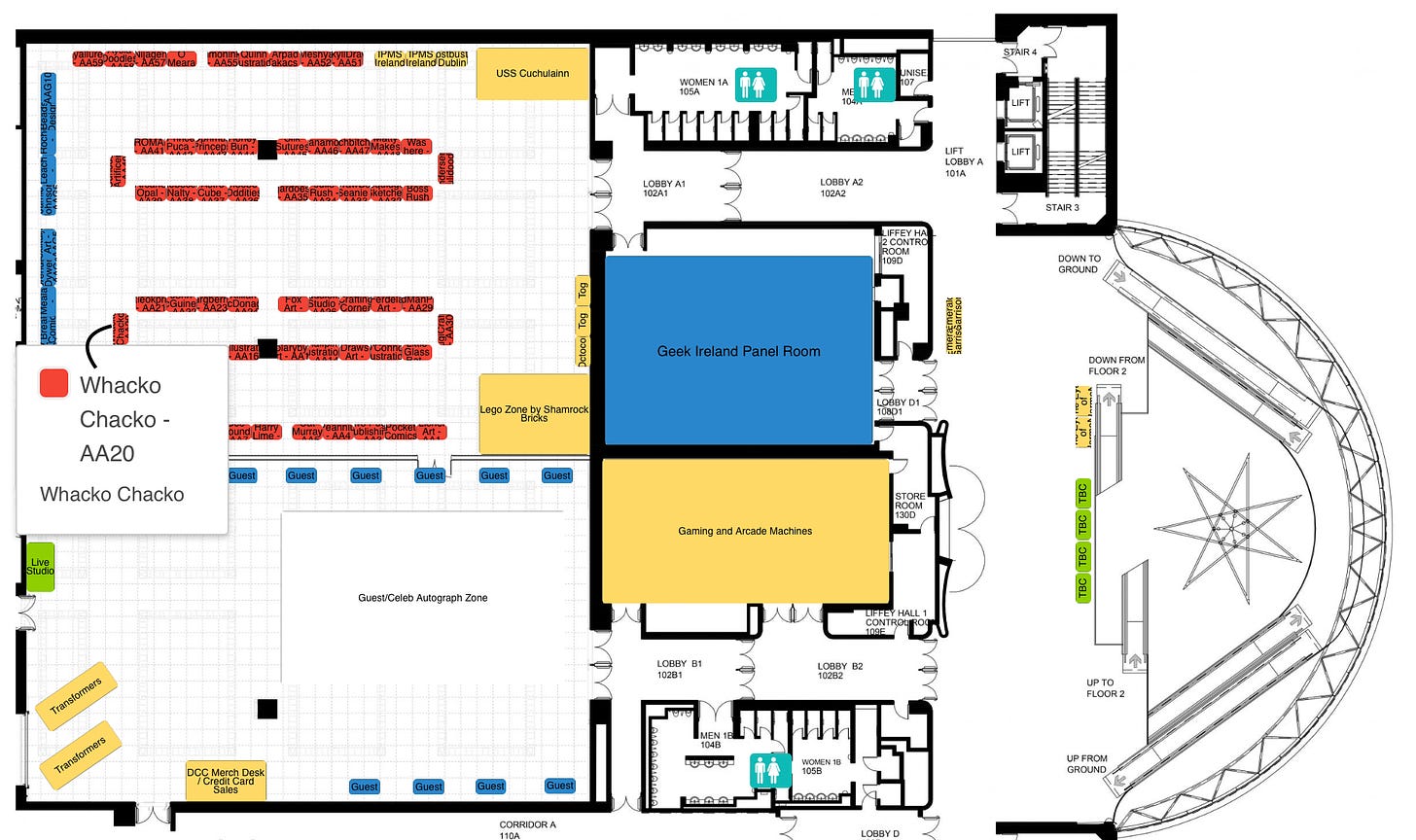I’ve made up my mind. I need to start and then the ever-present friend of Procrastination turns up and points me to something to distract me from my task.
I think this is a scene we can all relate to, we might be passionate about a new idea or a project we might be working on but inevitably we give into our procrastination.
I’ve been thinking a lot about this and two scenarios present themselves.
Scenario 1
The first is the potential lack of clarity around the task. As James Clear says in his book the ‘Atomic Habits,’
“ Many people think they lack motivation when they really lack clarity.”~ James Clear
If this is the cause of the procrastination it means that we need to spend time clarifying the steps we need to take to accomplish the task. It could be that we are feeling overwhelmed by the amount we need to get and fear starting because we will then have taken the step to commit to the slog. Often times we’ve built the task up in our head that it seems more monumental than it really is. Try and figure out the WHY behind the procrastination. Here are some steps I’ve taken that have helped me:
Create a to-do list of all the tasks you need to get done
It’s important to clarify all the information in our heads and put down what we actually need to get done for the day vs the whole week, month, or year. If we are worrying about the big picture it can be hard to focus on the task at hand or vice versa.
Order the list from the most crucial to necessary to nice to have.
Sometimes we fill our days with tasks that have little to no impact and it’s important we clarify our priorities so we can use our time well. Use the 20/80 rule. 20% of your action account for an 80% outcome, prioritize your highest-impact tasks, increasing your productivity throughout the day. The idea is that out of your entire task list, completing 20% of those tasks will result in 80% of the impact you can create for that day.
Set a reward for yourself.
It’s funny but I didn’t realize I was doing this until recently when I was having a conversation with my dad in which he commented that unlike other artists he knew I was quite disciplined. He mentioned how as a kid I would finish my homework before I went out to play. My response was I would rather finish the unpleasant task of homework and get it out of the way than go out to play and dread having to do homework the whole time. Inadvertently I had set myself a reward, by choosing to do my homework first I was rewarding myself with more time to play. As adults, we can take on the same tactic. For instance, once I finish this task I can then have a cup of coffee or watch an episode of my favorite TV show. Incentivizing yourself gives you the motivation to stick out an unpleasant task.
As James Clear puts it, the 4 laws of behavior are “ make it obvious, make it attractive, make it easy, and make it satisfying.”
P. S. Hot tip, ticking off tasks as you get them done give you a little dopamine hit which makes you feel good and motivated to keep going. Start with an easy task to kickstart the journey. It could be as simple as writing, ‘make a to-do list’ and ticking that off your to-do list once you’ve done it.
Scenario 2
The second scenario is scenario might relate to how our brain processes information. We have two systems a fast system which is our subconscious mind and a slow system which is our conscious mind. Adam Morgan in his book ‘Sorry Spock Emotions Drive Business,’ puts it beautifully when he uses the analogy of the brain as a computer.
Our brain like the computer is made up of three key components, the hard drive, the CPU, and the various input devices. Your senses, eyes, ears, nose, and skin are the input devices sending information to your computer.
“The CPU is your executive function. Your executive function handles all the logic. It processes new experiences and then sends them to your hard drive….Your hard drive is the bulk of your brain. It holds all your memories and acts as your long-term storage. Most of what happens on your hard drive is in your subconscious.” ~ Adam Morgan
So let’s look at how we develop ideas and process information I like to simplify it into these four terms Data, Dots, Distractions, and Doing.
Data: where we do our research and gather information.
Dots: where immersed ourselves in inspiring data gathered and connect the dots.
Distractions: where we go into incubation mode and we step away from the task or project to allow our minds to process the data
Do: Where we take the ordered data and make it actionable.
Understanding why we are procrastinating is important so we understand what solution to use. If indeed your analysis finds that you are in scenario 2 then procrastination is a good thing. It could be that our brain needs to process the data around the project or task we need to do and it hasn’t had the opportunity or the space to fully order the information; so we procrastinate to give out subconscious mind the necessary time.
Some things I do in scenario 2:
I step away from the project and go to something else unrelated. This can be going for a walk, doodling, making something with my hands, listening to a podcast or just having a sleep basically distract yourself. For someone looking from the outside, this can seem like a waste of time but it’s a really important step. As Adam says this gives your “subconscious brain or your fast system, a chance to process all the data and create more connections.”
I can’t tell you how many times I’ve been having a shower allowing my mind to wander when I’ll suddenly have an on slot of ideas or connection related to the problem I’m trying to solve.
As Austin Kleon states in ‘Steal Like an Artist,’ about his own approach to procrastination “I think it’s good to have a lot of projects going at once so you can bounce between them. When you get sick of one project, move over to another, and when you’re sick of that one, move back to the project you’ve left. Practice productive procrastination.”
My final thoughts
Procrastination can be an inhibitor or a tool depending on the situation. In both situations, it’s important to take the time to analyze the why behind your actions. Finding the root cause allows us to better prescribe the necessary antidote.
What has your experience been with procrastination? Can you relate to either of the situations? Let me know in the comments.
You might like this…
If you like me have been struggling to stay on task and are tired of not being able to keep track of your goals? Want a way to keep yourself organized and accountable? I’ve developed the Just Start Pocket Plan is a simple, easy-to-use daily organizer notebook to help you to keep track of your daily goals. It comes with 30 pages to keep you on track for each day of the month. Simple, organized, and effective. Just Start today! The Just Start Pocket Plan is the companion notebook to the Just Start book.
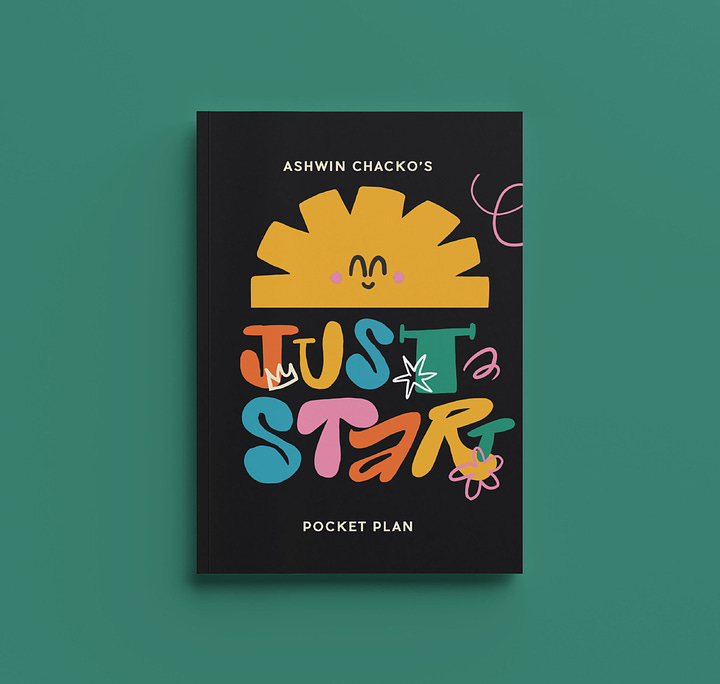
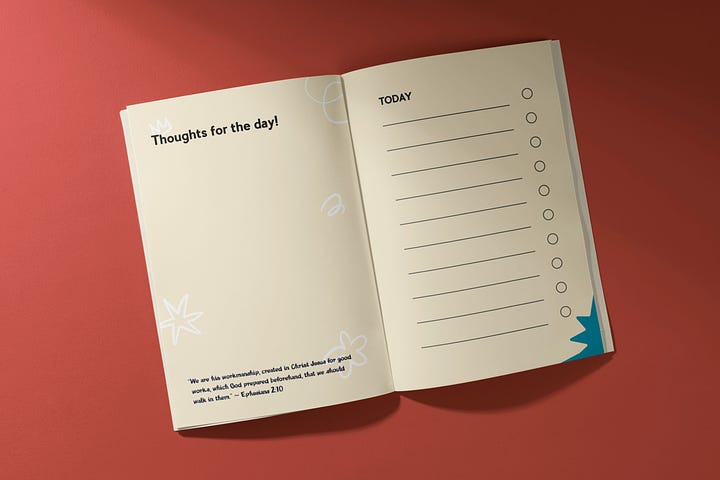
News
I am going to be tabling at Dublin Comic Con on the 11th and 12th of March at the Convention Centre. If you are around come say Hi!
Weekly Pep!
Listen
Today's guest is the founder and creative director of Brand Central Gerard Whelan. Gerard shares his story and his insights on working in the design industry for decades. He shares his top tips on having great partnerships, dealing with failure, and what it takes to get hired (great portfolio tips).
Watch
Develop habit’s that stick. Here are my 3 key takeaways from Atomic Habits by James Clear.
Have a wonderful week! Keep Smiling!
Ashwin Chacko
Be you x Be True
P.S. If you enjoy what I do and the content I create consider being a patron and supporting me through a paid subscription.




